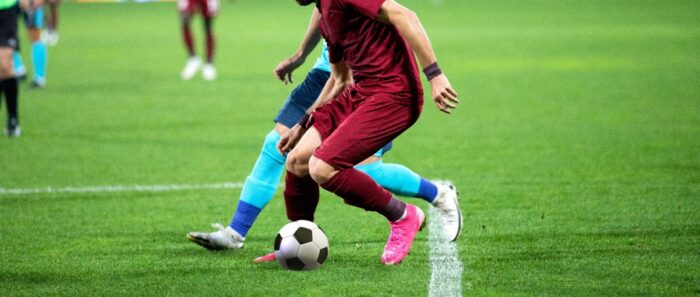Playing Division 1 soccer is a prestigious achievement, representing the pinnacle of collegiate athletics. To compete at this level, players must possess a unique blend of technical skills, tactical understanding, physical fitness, and mental fortitude. Kevin Morgan of New York highlights the key skills and techniques required to excel in Division 1 soccer, offering insights for aspiring players looking to elevate their game.
Technical Skills
- Ball Control and Dribbling
Ball control is fundamental in soccer, and Division 1 players are expected to handle the ball with complete precision under pressure. This includes the ability to trap, receive, and move the ball seamlessly with both feet. Dribbling skills are equally important, allowing players to maneuver through tight spaces and evade defenders. Mastery of various dribbling techniques, such as the step-over, scissors, and body feints, will make a significant difference in one-on-one situations.
- Passing and Receiving
Effective passing and receiving are critical to maintaining possession and creating scoring opportunities. Division 1 players must excel in short, quick passes as well as long, accurate deliveries. This requires a strong understanding of timing and spacing, as well as the ability to read the game. Players should practice passing with different parts of the foot and under various conditions to enhance their versatility.
- Shooting and Finishing
Scoring goals is the ultimate objective in soccer, and Division 1 players must be proficient in shooting and finishing. This includes the ability to strike the ball cleanly with both power and precision from countless different angles and distances. Players should work on various types of shots, including volleys, half-volleys, headers, and bending shots, to become well-rounded finishers.
Tactical Understanding
- Positional Awareness
Understanding one’s role and positioning on the field is crucial for Division 1 soccer players. Each position has specific responsibilities, and players must be aware of their duties both offensively and defensively. For instance, a central midfielder should know when to drop back and provide support to the defense, as well as when to push forward and join the attack.
- Game Intelligence
Soccer is a game of strategy and quick decision-making. Division 1 players need to develop a high level of game intelligence, often referred to as “soccer IQ.” This involves anticipating opponents’ moves, making smart decisions under pressure, and exploiting weaknesses in the opposing team’s formation. Watching game footage, studying different playing styles, and learning from experienced coaches helps to enhance a player’s tactical acumen.
- Communication
Effective communication is essential for a cohesive team performance. Division 1 players must communicate clearly and confidently with teammates, whether it’s calling for the ball, organizing the defense, or signaling a play. Good communication helps to prevent misunderstandings and ensure that everyone is on the same page during critical moments in the game.
Physical Fitness
- Speed and Agility
Speed and agility are vital attributes for Division 1 soccer players. The ability to accelerate quickly, change direction efficiently, and maintain high-speed runs can give players a significant advantage over their opponents. Incorporating sprint drills, ladder exercises, and plyometrics into training routines can improve these physical qualities.
- Strength and Conditioning
Physical strength is necessary to win tackles, shield the ball, and endure the physical demands of the game. Division 1 players should engage in a comprehensive strength and conditioning program that includes weight training, core exercises, and functional movements. Maintaining peak physical condition throughout the season helps prevent injuries and enhances overall performance.
- Endurance
Soccer requires a high level of cardiovascular endurance, as players often cover several miles during a match. Division 1 athletes must be able to sustain their energy levels and maintain a high work rate throughout the entire game. Interval training, long-distance runs, and high-intensity workouts are effective ways to build and maintain endurance.
Mental Fortitude
- Resilience and Grit
Division 1 soccer is highly competitive, and players must possess resilience and grit to overcome challenges. This includes bouncing back from setbacks, such as injuries or losses, and staying focused on long-term goals. Developing a strong mental game involves practicing mindfulness, setting achievable objectives, and maintaining a positive attitude.
- Concentration and Focus
Maintaining concentration and focus is critical in high-pressure situations. Division 1 players must be able to stay engaged throughout the match, even when fatigue sets in. Mental training techniques, such as visualization and goal-setting, can help players improve their focus and perform consistently at a high level.
- Teamwork and Leadership
Soccer is a team sport, and Division 1 players must excel in teamwork and leadership. This involves working well with teammates, understanding and respecting different roles, and stepping up as a leader when needed. Effective leaders inspire their teammates, set a positive example, and contribute to a winning team culture.
Excelling in Division 1 soccer requires a comprehensive skill set that encompasses technical proficiency, tactical understanding, physical fitness, and mental toughness. Aspiring players should focus on continuous improvement in these areas while seeking guidance from coaches, engaging in dedicated practice, and learning from every game experience. By mastering these essential skills and techniques, players can enhance their performance and make a significant impact on the field, paving the way for success at the collegiate level and beyond.
